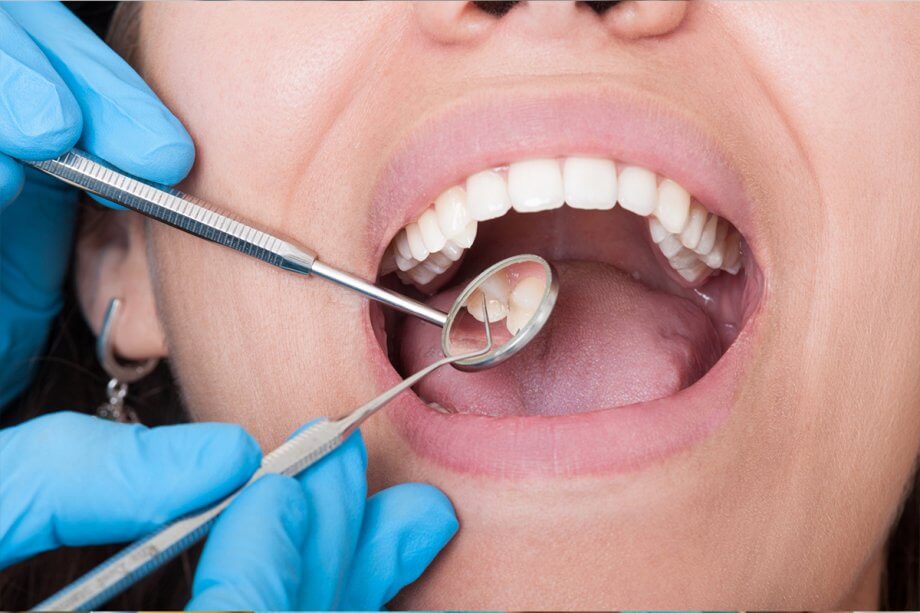Are you a nighttime teeth grinder? Many people grind their teeth in their sleep and are not even aware of it. Also called bruxism, the telltale signs are the symptoms that result in the morning and over the long term. If you grind your teeth at night, you may be wondering how you can stop it. Here’s what you need to know.
Signs and Symptoms of Nighttime Teeth Grinding
These are some of the most common signs and symptoms of teeth grinding:
- Headaches. The pressure of teeth grinding on your jaw can give you headaches, most often in the region of your temple where your lower jaw attaches to your skull.
- Jaw pain. Your jaw may be sore in the morning after a night of teeth grinding.
- Neck pain. Clenching your jaw and grinding your teeth puts strain on the muscles of your neck, which may mean you wake up with neck pain.
- Worn down teeth. Your dentist will likely notice it first, but in severe cases you may see that your teeth are starting to wear down. Over time teeth can sustain severe damage from teeth grinding.
- Cracked, chipped, or broken teeth. The force of frequent teeth grinding can cause your teeth to crack, chip, or even break, resulting in the need for dental crowns.
- Loose teeth. Grinding your teeth puts pressure on the support structures for the teeth, which can cause your teeth to loosen or even come out.
- Teeth sensitivity. Grinding your teeth wears away the enamel, which is the protective outer layer of your teeth. As the enamel is worn away, the nerves in your teeth become more exposed, making your teeth more sensitive to heat, cold, and even sugar.
- Tooth decay. When your teeth are damaged from grinding, they are more susceptible to tooth decay. Bacteria gets into the cracks and spaces that teeth grinding creates, resulting in cavities or the need for a root canal.
If you have any one or a combination of the above signs or symptoms, you most likely grind your teeth at night.
How To Stop Grinding Your Teeth
It is extremely difficult to stop a behavior that you are unaware of. You don’t make a conscious decision to grind your teeth, it happens while you are asleep. In some cases, teeth grinding is the result of stress. Reducing the amount of stress in your life or taking steps to destress before you go to bed may help, but there’s no way to be sure you won’t grind your teeth at night while you sleep. Your best bet is to curb the effects of the behavior.
How To Prevent the Symptoms of Chronic Teeth Grinding
For patients who continually grind their teeth, dentists recommend wearing a mouthguard at night. A mouthguard fits over your teeth and is designed to absorb the impact of clenching your teeth together. It relieves the pressure on your jaw and prevents damage to your teeth.
You can purchase a mouthguard from the dental care aisle of your pharmacy or grocery store that can be molded to fit your teeth. Or your dentist can make you a custom mouthguard that is created just for you to fit the shape of your teeth and jaw. A custom mouthguard may be more comfortable than one you purchase in the store.
Aurora Dental Provides Custom Mouthguards for Teeth Grinding
Teeth grinding can be a serious issue that will negatively impact your dental and overall health. From pain and headaches to damaged teeth, the effects of teeth grinding are severe. Wearing a nightguard can prevent the negative effects of teeth grinding.
Aurora Dental creates custom mouthguards for our patients that are comfortable, compact, and durable. Your custom mouthguard will fit comfortably for nighttime wear without disrupting your sleep. In fact, you will likely find that you sleep much better and wake up feeling more refreshed after just a few nights of wearing your mouthguard.
Call 330-562-3400 today to schedule a consultation or request an appointment. We look forward to providing you with protection and relief from the effects of teeth grinding.

